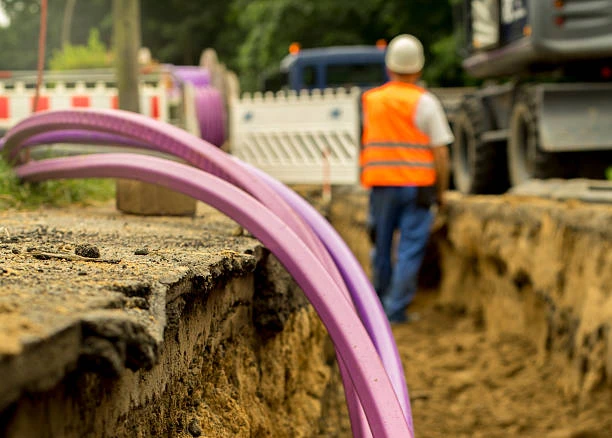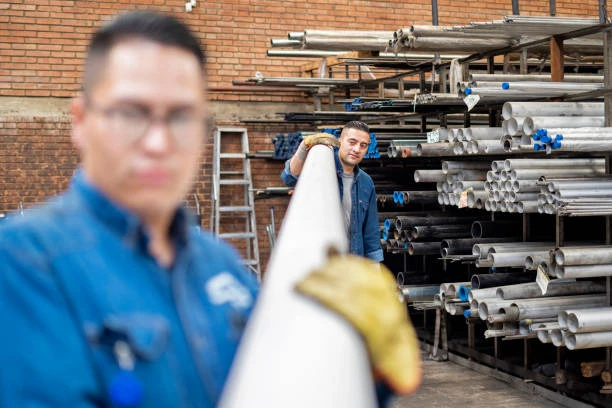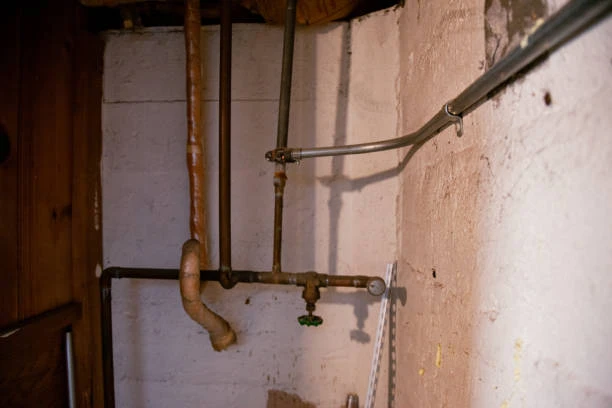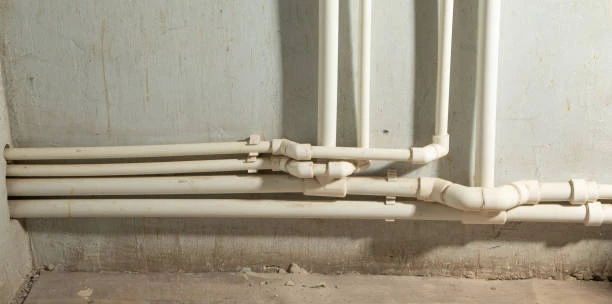Big Reveal of Faucet Maintenance Tips
A well-functioning hot and cold water tap mixer is essential to daily comfort in both homes and commercial spaces. Whether you’re rinsing dishes, washing your hands, or running a bath, having a reliable and efficient tap mixer ensures a perfect water temperature every time. However, even the most stylish and durable mixer taps can develop faults over time if not maintained properly. From leaks and uneven water flow to corrosion and valve failure, regular maintenance can prevent small problems from becoming expensive repairs.
This article covers everything you need to know about keeping your mixer taps in top shape. We’ll start by addressing common user questions, then explain brass valves, share selection and installation advice, compare material choices, and offer expert insights to help you make informed decisions about your tap system.
Frequently Asked Questions (FAQ)
1. Why is my hot and cold water tap mixer not balancing the temperature properly?
This is often caused by a worn-out mixing cartridge or blockage in the water supply lines. Cleaning or replacing the cartridge typically resolves the issue.
2. How can I stop my tap from dripping?
A dripping mixer tap usually indicates a faulty washer or cartridge. Replacing these internal components is a simple and effective solution.
3. What causes noisy taps when I turn them on?
This could be due to water hammer, loose pipework, or internal valve issues. It’s important to check both the installation and condition of the valves.
4. Is it better to repair or replace a leaking mixer tap?
If the tap body is cracked or heavily corroded, replacement is more cost-effective. For minor issues like a worn cartridge, repair is usually sufficient.
5. How often should I clean or maintain my mixer tap?
It’s advisable to clean the aerator and check internal parts every 6–12 months. Regular maintenance helps prolong the life of your hot and cold water tap mixer.
Brass Valves: Definition and Main Characteristics
Brass valves are integral components in many water systems, including hot and cold tap mixers. A brass valve is made from a copper-zinc alloy known for its strength, safety, and longevity.
Key Characteristics:
High Durability: Brass withstands mechanical stress, making it ideal for high-traffic plumbing environments.
Corrosion Resistance: It resists rust and mineral scaling better than other metals.
Thermal Stability: Brass tolerates both hot and cold water without deformation.
Hygienic Properties: It naturally resists microbial growth, promoting safe water usage.
Easy to Machine: Allows for precise manufacturing of complex valve shapes.
Brass valves are commonly used in hot and cold water tap mixer assemblies due to their ability to handle pressure and temperature fluctuations without leaking or breaking.
Common Applications of Brass Valves and Mixer Taps
Brass valves and hot/cold mixer taps are found in a wide range of settings, each requiring specific performance and durability.
Residential:
Bathroom basins and showers
Kitchen sinks
Laundry areas
Commercial and Public Use:
Hotels and resort bathrooms
Restaurant kitchens and restrooms
Office and shopping centre washrooms
Industrial and Speciality Applications:
Hospitals and laboratories
Schools and public institutions
High-rise residential developments
The versatility of a hot and cold water tap mixer with brass internals makes it a preferred solution across both domestic and industrial settings.
Buying Guide: How to Choose the Right Tap Mixer
Choosing the right hot and cold water tap mixer involves more than just looks. Quality, functionality, and compatibility with your plumbing system matter just as much.
Key Factors to Consider:
1. Material Quality
Look for taps made of solid brass or high-grade stainless steel. Avoid low-cost zinc alloys or plastic bodies that can break down quickly.
2. Cartridge Type
Choose ceramic disc cartridges for smooth operation and long-lasting leak prevention. These are much more reliable than traditional rubber washers.
3. Design and Finish
Modern mixers come in chrome, matte black, brushed nickel, and gold. Pick a finish that complements your basin and withstands daily use.
4. Water Pressure Compatibility
Ensure the mixer tap is compatible with your water system’s pressure. Some models require higher pressure to operate correctly.
5. Safety Features
Look for models with anti-scald protection and integrated check valves that prevent backflow.
6. Certification and Standards
Verify that the tap and internal valves meet recognised standards such as ISO, EN, or WRAS for product safety and durability.
Installation Tips for Hot and Cold Water Tap Mixers
Proper installation helps prevent leaks, improves flow efficiency, and ensures long-term functionality. While some homeowners install taps themselves, professional assistance ensures accuracy and compliance with regulations.
Installation Guidelines:
Turn Off the Water Supply: Shut off both hot and cold water valves before beginning.
Fit the Tap Base and Mounting Plate: Insert the tap into the basin hole, aligning it carefully.
Tighten the Fixing Nut: Use a basin wrench to secure the tap tightly beneath the sink.
Connect Flexible Hoses: Link hot and cold supply lines to the mixer tap inlets, ensuring the correct direction.
Flush the System: Let water run briefly to remove debris before securing all components.
Check for Leaks: Test for tightness and seal integrity after turning the water supply back on.
Following these steps helps your hot and cold water tap mixer perform well from day one.
Brass Valves vs Plastic Valves: A Practical Comparison
Choosing the right valve material impacts your tap’s durability and safety. Below is a side-by-side comparison of brass and plastic valves.
| Feature | Brass Valves | Plastic Valves |
|---|---|---|
| Durability | Extremely strong and long-lasting | Prone to cracking and deformation over time |
| Temperature Resistance | Withstands hot and cold water with ease | May deform under heat or freeze in cold climates |
| Corrosion Resistance | Naturally resists rust and scale | Susceptible to chlorine and chemical damage |
| Hygiene | Antimicrobial and safe for drinking water | May encourage bacterial growth if not maintained |
| Installation | Requires careful tightening, heavier | Easy to handle and install, lightweight |
| Cost | Higher cost, better long-term value | More affordable but less durable |
| Recyclability | Fully recyclable and eco-friendly | Limited recycling options |
For high-use systems, such as a hot and cold water tap mixer, brass valves are the preferred option due to their long-term reliability and safety.
Conclusion
Maintaining your hot and cold water tap mixer doesn’t have to be complicated. With routine checks, timely part replacements, and careful installation, you can extend the life of your tap system and avoid costly repairs. Brass valves are a critical part of this, offering superior performance, hygiene, and long-term savings compared to plastic alternatives.
Whether you’re choosing a new mixer tap or upgrading an existing one, invest in high-quality materials and follow professional installation practices. A good tap not only improves comfort and water efficiency but also enhances the aesthetic of your kitchen or bathroom space.
Connect
IFAN is a reputable Chinese manufacturer with over 30 years of expertise in producing high-quality plastic pipes, brass fittings, and valve systems. We specialise in providing durable and affordable components for modern plumbing systems, including hot and cold water tap mixers.
Whether you’re a builder, retailer, or project manager, IFAN offers a wide range of piping products to suit all water system requirements. Contact us today for the best deals on brass fittings, copper valves, and plastic pipes.
Get in Touch:
- For more information,pls visit our webside https://waterpipefitting.com/
Pls Mailto: [email protected]
Whatsapp: +86 15088288323
We promise to respond to your email or fax within 24 hours, and our support team is available by phone for urgent enquiries.
IFAN Product International Standards
IFAN’s full product line adheres strictly to globally recognised standards for quality, safety, and performance. Our manufacturing and testing processes ensure all parts are reliable, safe, and suitable for use in a wide range of applications.
Certified Standards Include:
ISO 15874, EN 15874, ASTM F2389, DIN 8077/8078, GB/T 18742, NBR 15884, ISO 15494, EN ISO 15494, GB/T 19472, NBR 15494, ASTM 2846 (501), DIN 8079/8080 (502), ASTM F441/F441M SCH80 (503), DIN (504), DIN (505), GB/T 18993, AS/NZS 1477, CSA B137.6, NSF/ANSI 14, TIS 17-2532/1131-2535, BS 3505, BS 4346 (801), ASTM D1785 SCH40 (802), ASTM D1785 SCH80 (803), DIN (804), GB (805), GB (806), GB(901), DWV(902), ASTM D2665 (903), ASTM D2241, D2665, D2729, F441/F441M series, ISO 1452, EN ISO 1452, DIN 8061/8062, GB/T 10002, AS/NZS 1477, JIS K6741, CSA B137.3, and others.
These certifications validate our commitment to excellence and customer satisfaction worldwide.














Recent Comments